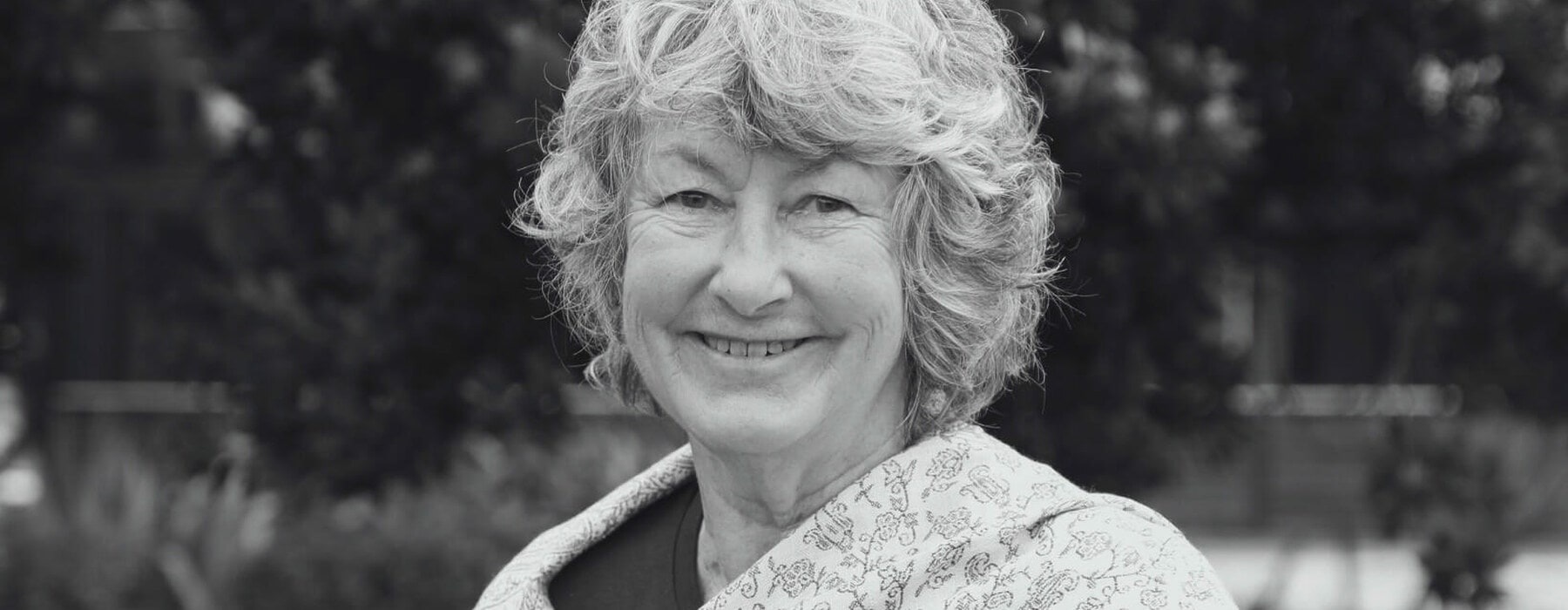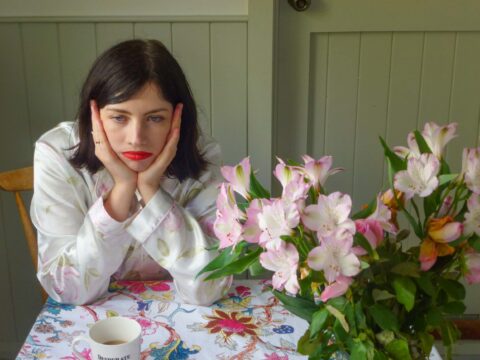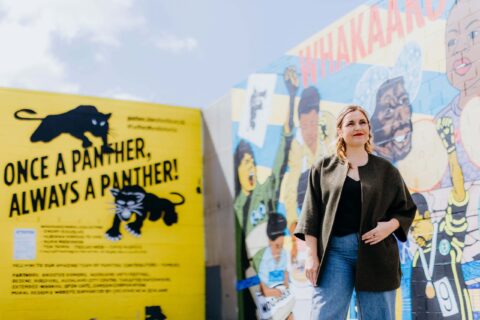In a country with yawning inequality Liz Greive is impelled to try to shift the dial by donating her superannuation payment and making it real simple for others in a similar position to do the same.
* This is a voiceover created by AI and therefore some of the words or pronunciations may be incorrect. We hope you still enjoy this listening experience
Sitting at her wooden desk at primary school in the freezing Lake District in Northern England, six-year-old Liz Greive can see two little girls who stand out.
“Their father died of tuberculosis. They lived in a tiny, cold house, and they always looked thin and pale. It made a lasting impression on me.”
This is the first time she realises what poverty can look like.
Even now, more than 60 years later, sitting in her waterfront apartment in Auckland at her long wooden table surrounded by striking Kiwi artworks, Liz Greive, lively and thoughtful in her bright pink dress, has never forgotten those two girls.
It’s something that has provided a common thread through what has been an energetic life, latterly a comfortable one.
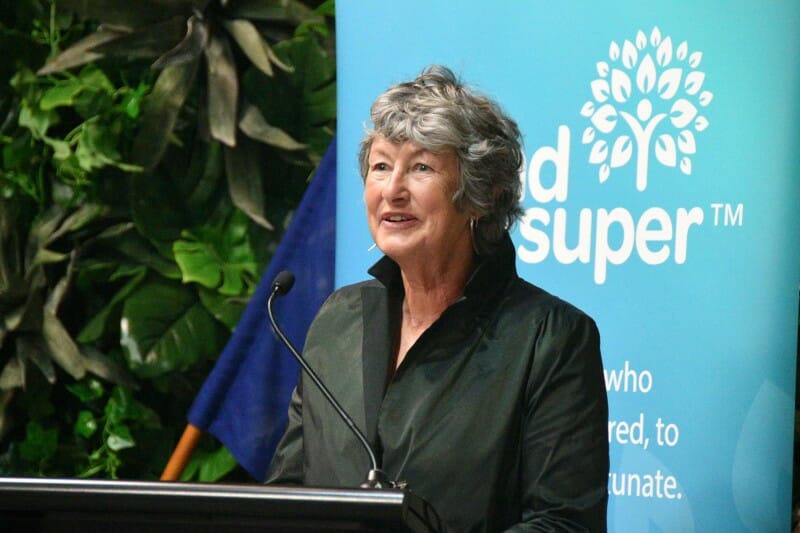
Where it all started
While Liz was young in the UK and for a stint in New Zealand, she began a career as a social worker, supporting her family as the main breadwinner while her husband studied, at times holding down three jobs with a new baby to care for. Those were tough times, she remembers. “We had not a lot to spare.”
She worked in Māori and Pasifika communities in South Auckland, before moving back to London to set up a consultancy training social workers and working with deeply troubled children.
As her husband Chris moved through to management in the European travel company Top Deck Travel, eventually shifting the family back to New Zealand to build up Flight Centre, Liz took over raising the family and running the household. Flight Centre was listed on the stock market, and the family purchased Barkers, the menswear clothing company, and made other investments.
And now, juggling a daughter and grandchildren living in Perth, a son, grandchildren, and wide circle of friends in Auckland, and a home in Spain where she spends part of every year, Liz has been doing what she really wants for herself.
After a difficult divorce later in life, many women go through a process of exploring their identity as they navigate a new direction that is no longer centered around their relationship with another individual.
“I was known for many years as Chris’s wife, and then as Duncan’s mother because he’s so well known for setting up The Spinoff. Now I’ve been finding out who I am, and what I’m capable of again.”
For Liz Greive, that has meant examining her values and the legacy she wants to leave.
“I think about those two girls, and about all the children I saw as I worked in deeply impoverished communities, and my belief is that everyone who can, needs to help other people’s children.”
“My own children are fine. They have had choices throughout their life, even though we were not at all well off for a good part of their childhood. But many of these other children do not even have shoes or enough good food, and their life choices are limited.”
Her epiphany came when she turned 65 and her Universal Superannuation letter arrived.
“I didn’t need that money, but I knew who did. Children like those two little girls.”
Three years ago, she set up Share My Super, a charity that helps older people who live a comfortable life and who don’t need all their pension, to donate it to vetted organisations helping children in poverty. She is able to fund 100% of the operational expenses so everything donated goes to help children.
Share My Super has now raised more than $1.3 million for 11 of New Zealand’s most impactful and outstanding organisations – Ako Maātātupu: Teach First NZ, Digital Future, Kids Can, First Foundation, Pillars, Wellington City Mission, Te Pā, Womens Refuge, Hillary Outdoors, Variety and Childrens Poverty Action Group.
When superannuation went up this month, by about $100 per couple per fortnight and about $70 for individuals, Liz saw another opportunity.
“Some of the 880,000 people receiving a pension increase won’t need it for themselves. They might be still working, they might have been fortunate enough to accumulate wealth so they have something to spare.”
Helping young people in poverty has never been more urgent.
The latest Government figures show progress on reducing poverty has slowed to a standstill in the last couple of years.
Analysis by economist Max Rashbrooke for Share My Super shows one in five Māori children, and one in four Pasifika, are in poverty. Children with disabilities also experience much higher than average rates of poverty.
Related article: Meet 3 crusaders of equality who are determined to end period poverty
Three important indicators show stasis.
The number of children in households with less than half the typical income stayed flat, hardly shifting from 13% in 2021 to 12% in 2022.
The number of children in households with less than half the typical 2018 household’s income after housing costs are deducted, again stayed flat – from 15% in 2021, to 15.4% (177,000) in 2022.
And thirdly, the number of children in households struggling to meet everyday costs, who say they can’t afford six or more basic items, such as fresh food or heating their home, has also remained steady at 11% in 2021, compared to 10.3% (119,000) in 2022.
While on all key measures tens of thousands of children have been lifted out of poverty since 2018, it would seem that the cost of living, the pandemic’s impact and other forces are inhibiting progress.
Tens of thousands of families have benefited, since 2018 and in the last year, from rising minimum wages, benefit increases, the Best Start and winter energy payments, and boosts to Working for Families.
These policies will have helped many families lift themselves out of poverty or remain just above the line, but many others remain in the grip of poverty.
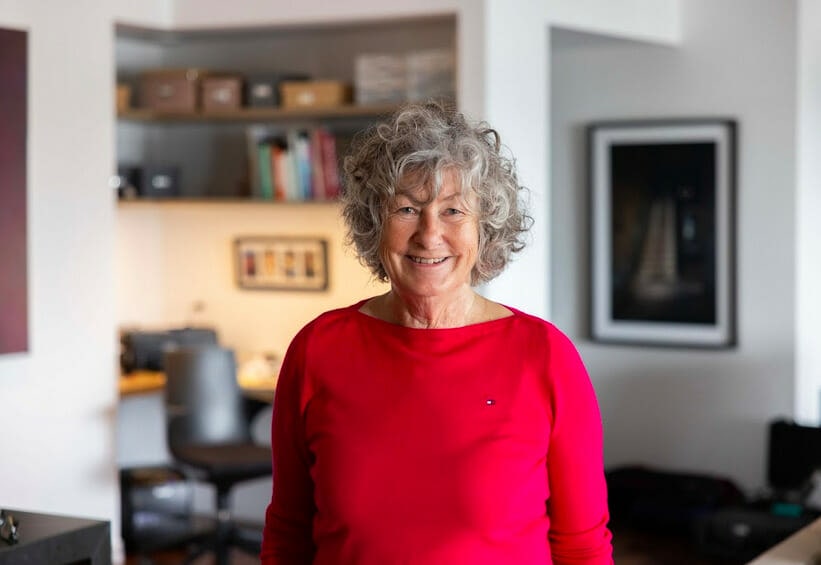
“Our patron, Dr Hinemoa Elder, a child and adolescent psychologist in a hospital setting, is telling us of witnessing high levels of mental illness, distress, grief, suicidal thoughts, planning and attempts among young people,” says Liz.
“She’s telling us that what frontline workers are seeing on the ground, at work, in our hospitals, are much more complex situations where increasing poverty is clearly a major factor. What people like her are seeing now is very different compared to pre-COVID and even compared to what was happening during lockdowns.”
In the face of such desperate need, Liz sees her own good fortune as an opportunity to give back and to strengthen society, particularly after striking out on her own.
“Once I had charge of my own wealth, I had the confidence to make my own decisions. I took stock, and the time to ask questions about what that wealth meant to me, what would be its purpose?
“I have taken care of my children, and now, how much of this do I need to carry on with my life, what do I want to achieve before the end and how can I give back?”
Her journey towards self-empowerment and realising her own ambitions has not been without its challenges.
Liz remembers more than a decade ago sitting in a meeting she was been told she could attend “if she wanted to”.
The meeting was discussing shared family money, and she was the only woman in the room. There were male financial advisors, male trustees, and male lawyers.
She remembers she didn’t understand everything that was going on, but she felt reluctant to show her ignorance.
That male domination could be intimidating, but it was normal practice at that time, she says.
“When I was very small, men used to bring home their pay packet and give some to their wife for pocket money or housekeeping. Women never saw the big picture. They never had any input into decisions. Even ten years ago there had been very little evolution.”
With determination, by refusing to accept the status quo, her post-divorce years have been transformative.
She now has her own investments, has become a director, and has been part of a campaign encouraging other women to step up, educate themselves and take charge of their financial affairs.
For Liz Greive, pushing back means making her own decisions without having to consult anyone.
Serendipity has led to her employing a female team of architects to work on her home in Spain and professional women to work on her personal affairs.
And that strong vein of determination has resulted in a spark of an idea flourishing into a community of what she calls Super New Zealanders making hundreds of thousands of dollars of difference to kids in need.

